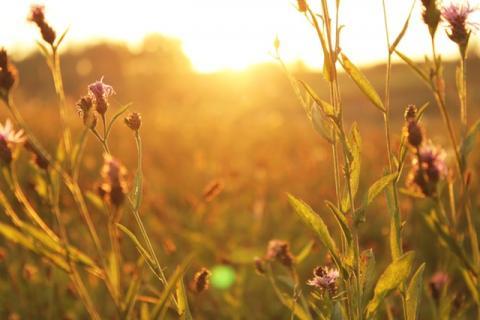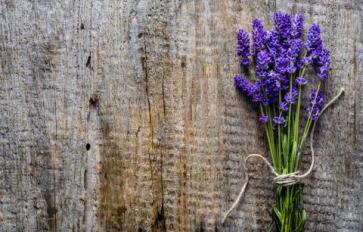
While looking at the overgrown parts of my vegetable garden, I felt a combination of regret and amazement. Regret because I have obviously been neglecting the garden, hence the overgrown weeds, grasses, and vegetable plants that have flowered and gone to seed. However, I was also amazed because I could still harvest quite a lot from it.
Nature did not have to try to be abundant, fertile and full of potential—it just was. We come from nature too - although sometimes we as humans tend to forget this everlasting and innate truth. Looking at my wild garden, I began to see wildness and wild spaces in a new light.
While gazing at the overgrown garden I noticed that chamomile flowers had sprouted up in odd places, the nettles were proliferate, as were the dinosaur kale and mustard plants. The cooking and medicinal herbs oregano, thyme, marjoram, lemon balm, mullein and yarrow were thriving. The flowers I had planted like calendula, jasmine and daisies were blooming quite beautifully, too. Oddly the wild, overgrown garden had a very special appeal that differed greatly from the perfectly neat, manicured garden that most gardeners aspire to.
As I stared at the overgrown cacophony of plants, flowers, grasses and weeds, I noticed the variety of birds, bees, butterflies and other pollinators that came and went as they pleased. The sheer diversity of species in terms of insects, plants, animals and microbes was dizzying to imagine and I became inspired by the free, abundant and fertile potential of nature.
Living in a highly industrialized society where much of our existence is experienced via media, technology and large corporate and state institutions definitely has its benefits. We have cutting edge medical facilities, free public education from K-12, accessible technology and endless forms of entertainment. We are globally connected in miraculous and amazing ways through social media platforms, communication devices and transportation systems.
We have achieved a certain standard of living that affords us much comfort, stability and privilege. But what has this industrialized comfort cost us? So, so much!
Even with all of the advantages that our society has to offer, deep down I know that all of this is possible because of nature’s intrinsic fecundity and biodiversity. All of our resources and the things we enjoy depend on nature’s productivity! Also, I realize that it is in nature’s unfettered wildness where we can find brilliance, inspiration, wellbeing, and transformation in a deeply personal way.
The wild spaces of the environment provide the perfect metaphor for the genius potential of the human mind. One of the biggest differences between the mind of a genius and the mind of an average thinker are the amount of ideas generated by each mind. The brilliant mind thinks of a lot more original thoughts than the repetitive thoughts of the average thinker. The genius mind has an unfettered wildness to it—it is a free-range mind available to any one of us. We as individuals would do well to tap into nature’s wild brilliance.
Stress, worry, anxiety, fear, and unhealthy eating habits are byproducts of modern industrial living and these negative aspects of modern life cut us off from our potentially brilliant selves. Sometimes I envy my wild garden – but more often I use it as inspiration and a reminder to myself that I too am innately creative, fertile, abundant and full of potential. I don’t have to try to be anything more or less than what I already am.








